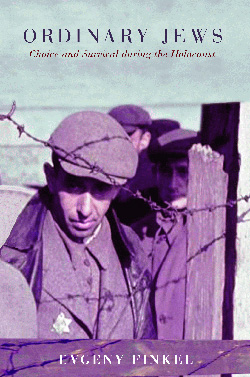Author Talk: Ordinary Jews
Wednesday, May 3, 2017, 6:30 - 7:30pm
 A free, public talk by Evgeny Finkel, author of Ordinary Jews, on the subject of how Jewish responses during the Holocaust shed new light on the dynamics of genocide and political violence.
A free, public talk by Evgeny Finkel, author of Ordinary Jews, on the subject of how Jewish responses during the Holocaust shed new light on the dynamics of genocide and political violence.
Focusing on the choices and actions of Jews during the Holocaust, Ordinary Jews: Choice and Survival During the Holocaust examines the different patterns of behavior of civilians targeted by mass violence. Relying on rich archival material and hundreds of survivors' testimonies, Evgeny Finkel presents a new framework for understanding the survival strategies in which Jews engaged: cooperation and collaboration, coping and compliance, evasion, and resistance. Finkel compares Jews' behavior in three Jewish ghettos—Minsk, Kraków, and Białystok—and shows that Jews' responses to Nazi genocide varied based on their experiences with prewar policies that either promoted or discouraged their integration into non-Jewish society.
Evgeny Finkel is assistant professor of political science and international affairs at George Washington University.
Located in the Frederick P. Rose Auditorium, at 41 Cooper Square (on Third Avenue between 6th and 7th Streets)




